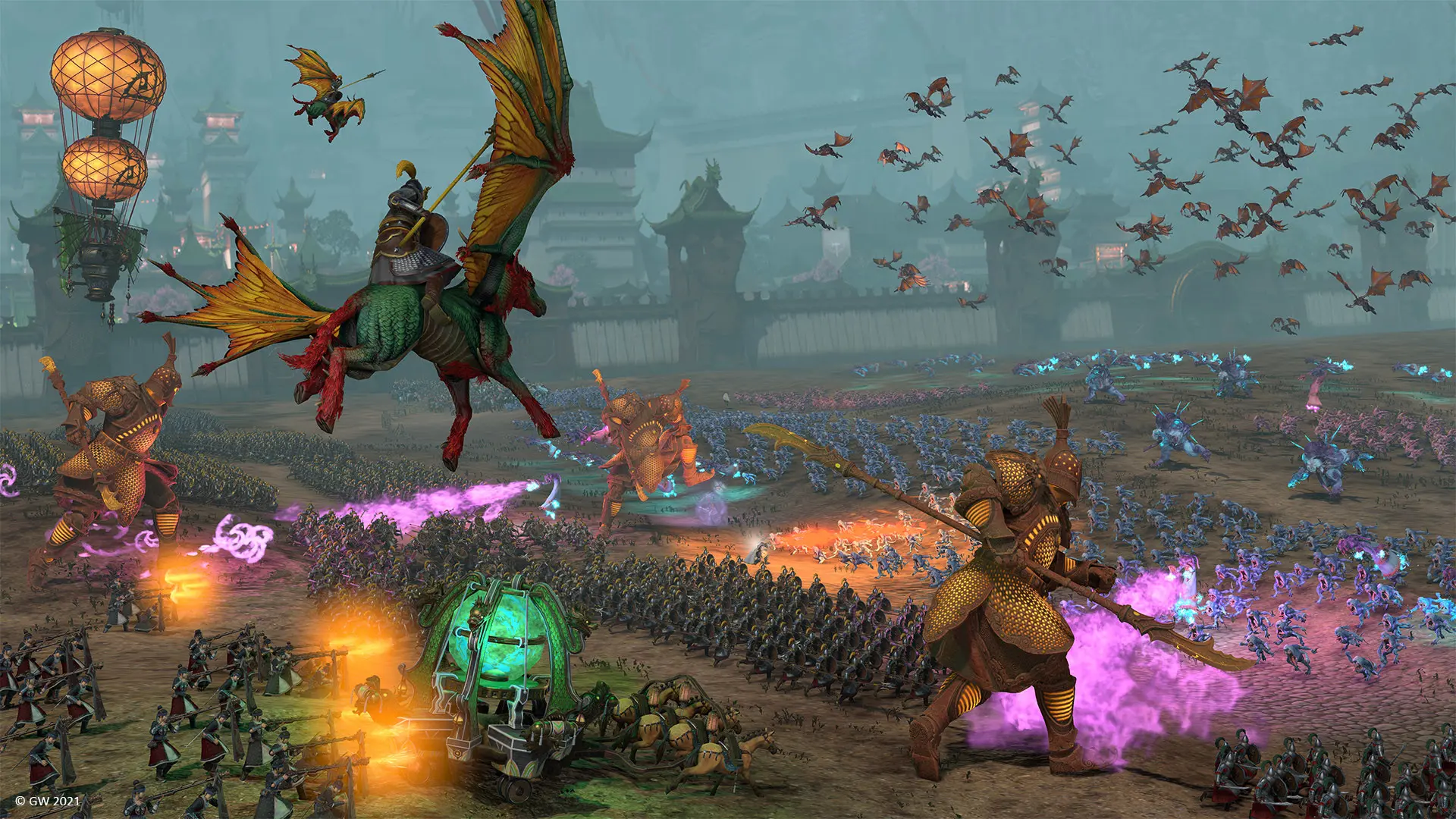The Total War series has a long history as one of the largest strategy games series in the world. Players can command massive armies and manage a huge empire. Having been through many games in the franchise in the last couple of weeks, it is clear that the studio has made some astounding experiences along with some not so greats. We will discuss what makes each game special and the positions they hold.
Ranking Criteria
To compile this ranking, we considered how much each game is enjoyed, whether fans would replay them today, historical context in the series, how well they’ve aged, launch state, and what they managed to change up for the franchise. This analysis is based on the perspective of a casual Total War fan rather than a hardcore Total War veteran. However, it will try to give an honest assessment that most gamers can relate to.
S-Tier: The Masterpieces
Total War: Warhammer III
Warhammer III, the crowning glory of the Total War series, is the third game created by Creative Assembly’s fantasy trilogy. While it didn’t launch perfectly, the game has gotten regular updates for nearly two years. The Immortal Empires campaign offers amazing scale, faction variety and replayability.
Total War: WARHAMMER III bundle together every single thing that made Warhammer II excellent but adds many more factions and new campaign mechanics. Although it can be quite an investment to buy access to all the content (potentially upwards of $300 for the three games and DLC), you are probably going to get thousands of hours of entertainment if you are a fan of strategy games so the cost is probably worth it.
Medieval II: Total War
When Medieval II launched, it did not change the Total War formula but perfected Rome: Total War’s successful mechanics. The medieval setting offers a great opportunity for building empires. There were great historical events like the Crusades, invasions by Mongols and the Black Plague, etc. were memorable.
The game is known for its iconic soundtrack and surprisingly aged well for a game over 15 years old. Medieval II is among the most-played Total War games on Steam for a reason – it just knows what it means to be Total War.
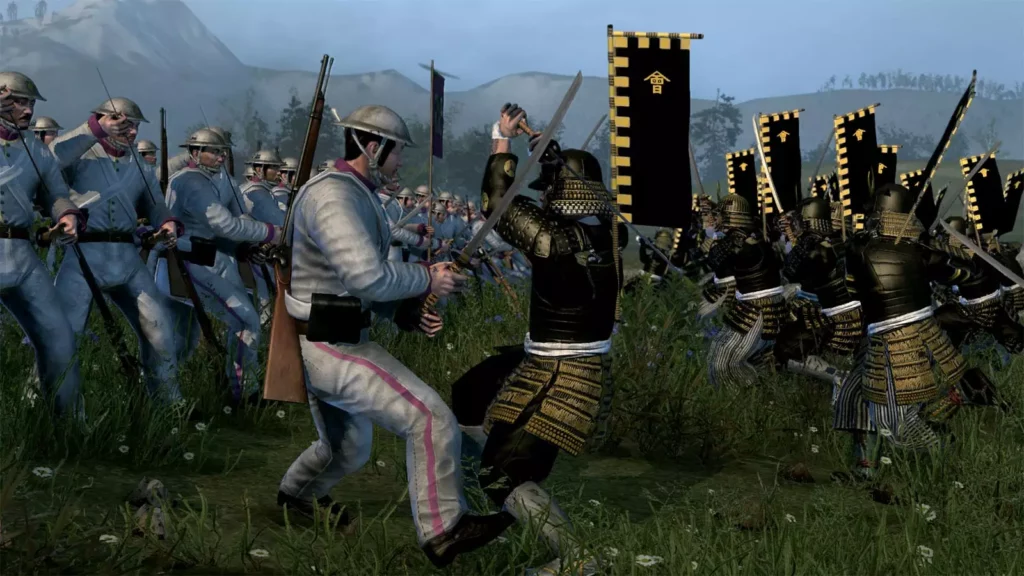
Total War: Shogun 2
Shogun 2 demonstrates what happens when Creative Assembly focuses on refinement rather than expansion. The game feels exceptionally polished in its interface and battle system experience. Everything seems pretty well thought out and balanced. The setting is feudal Japan with ninjas and samurai. So, the game fits in nicely.
Shogun 2 introduced meaningful progression via character skill trees, while the game’s siege battles remain unparalleled in the series. Even though your options are limited due to the roster of units present and factions being similar, it still offers a rather smooth experience and is one of the best in the series.
- Top Anticipated Games of 2026: Is AAA Making a Comeback?
- Top Multiplayer Games of 2026: Exploring New Online Worlds
- Fable from Playground Games Rumored for Simultaneous PS5 Launch; Forza Horizon 6 Delayed Due to Readiness Issues
- GameStop Plans to Close Hundreds of US Stores Amid CEO’s Potential $35 Billion Bonus
- Naoki Hamaguchi Prefers Backing New Talent Over Directing Final Fantasy VI Remake
A-Tier: Excellent Experiences
Total War: Three Kingdoms
Three Kingdoms is the crème de la crème of Total War games based on modern history, boasting some innovations. The strength of the coding of the characters and the diplomacy system is sublime. The Romance mode (directly inspired by the famous Romance of the Three Kingdoms) strikes a balance between history and fictional epic.
While there aren’t that many different units, the characters are deeply formed and the politics is worked out. It makes you wonder why Creative Assembly said goodbye to this title so soon. The game is very good and still has lots of players.
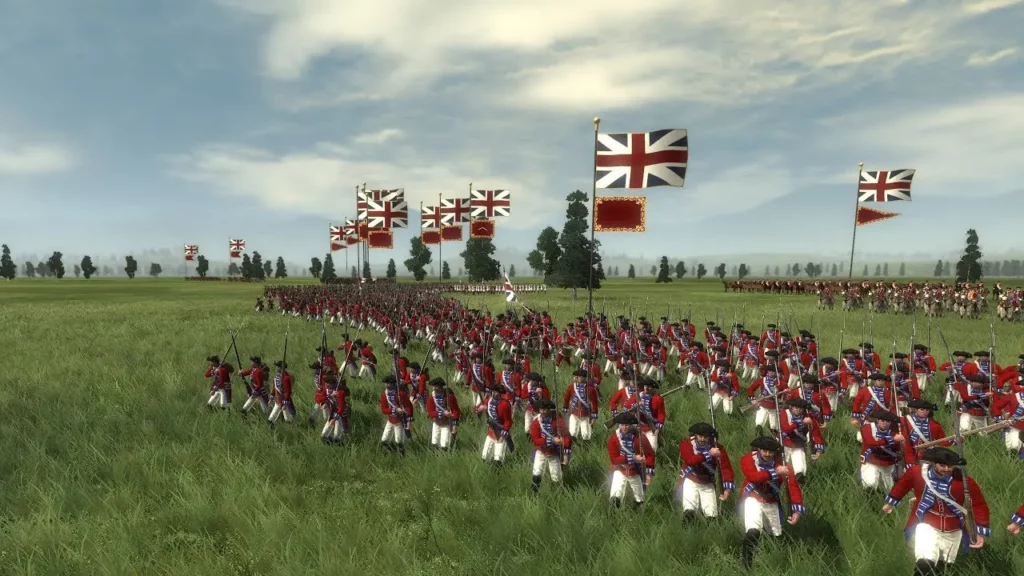
Rome: Total War
The original Rome was a turning point for the Total War games. Launched in 2004, it was a technical wonder that allowed the army to move fluidly on the campaign map and battle on a massive scale. Overall, this game popularized the Total War series by gaining fans in the strategy game community.
Rome’s influence on the series – and gaming more generally – may not be as gracious as some of the later titles but still counts all the same. For lots of fans it was their first step into the franchise, it’s a monumental success in strategy gaming.
B-Tier: Great But Flawed
Total War: Fall of the Samurai
Originally intended as an expansion for Shogun 2, before becoming a stand-alone release, Fall of the Samurai offers a unique challenge of both traditional and modern warfare. The story takes place in the late 1800s in Japan. It has samurai who fights swords in battle. And, there are also gun-toting soldiers. Along with the gun-toting soldiers, a naval bombardment also takes place.
The campaign mechanics cleverly weave in how imperial powers influenced Japan throughout this significant time in history. Creative Assembly’s choice to detach it from Shogun 2, yet still charge a premium price leaves a bad taste in one’s mouth and stops this great game from being A-quality.
Napoleon: Total War
Napoleon enhanced nearly all attributes of Empire to create a refined package, with a smaller geographical and historical scope. The gameplay of Total War offers a thrilling experience, and it is much better, in terms of performance and more interesting units, than its predecessor.
Napoleon is a well-crafted refinement of the gunpowder-age Total War formula, though it does not greatly affect the series. Although it may not be as ambitious as other entries, it doesn’t hurt to give it a shot if you’re a fan of this period.
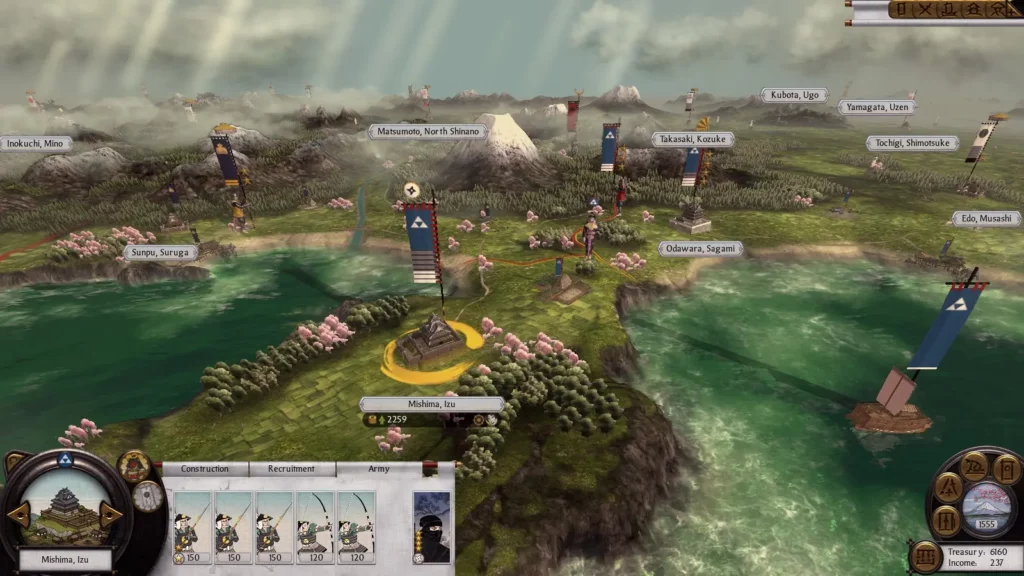
Rome II: Total War
Essentially, it is a decent game thanks to the patches, but one expects much more from Creative Assembly. The game had army stances like March and Ambush that came up in games later down the line and also retained naval battles. Most other games dropped those.
While Rome II has some issues, namely with the political system and province/hero management, the battles are much more fun and the setting is well. Even though Rome II requires tons of DLCs for accessibility, it still reigns as one of the most Played historical Total War Games, ten years since launching.
C-Tier: Good for Fans of the Setting
Empire: Total War
Empire was Creative Assembly’s biggest step forward. The series went to the 18th century, taking an enormous jump in scope and introducing many new systems. It was the first time the title utilized decentralized provinces, resource economies, government systems, and naval battles.
Unfortunately, this ambition outpaced execution. At launch, Empire experienced severe performance issues and bugs and felt underdeveloped in many of its systems. Although the naval battles impressed, the land combat and campaign mechanics didn’t quite connect well. Empire is no doubt an innovative title that deserve some credit, but unless you are particularly interested in that era there are better options out there for most players.
Attila: Total War
Attila is the game that introduced horde mechanics and much deeper religious systems, and is set at the very end of the Roman Empire. If you are strategic game’s hard core fan and looking for challenge, it is historic in nature and genuiene.
Still, Attila has boring visuals and an uninspiring unit roster. Compared with Rome II, the campaign map looks muddy, and generally speaking, it does not look great. Attila works well mechanically but doesn’t have the best Total War quality that draws you in.
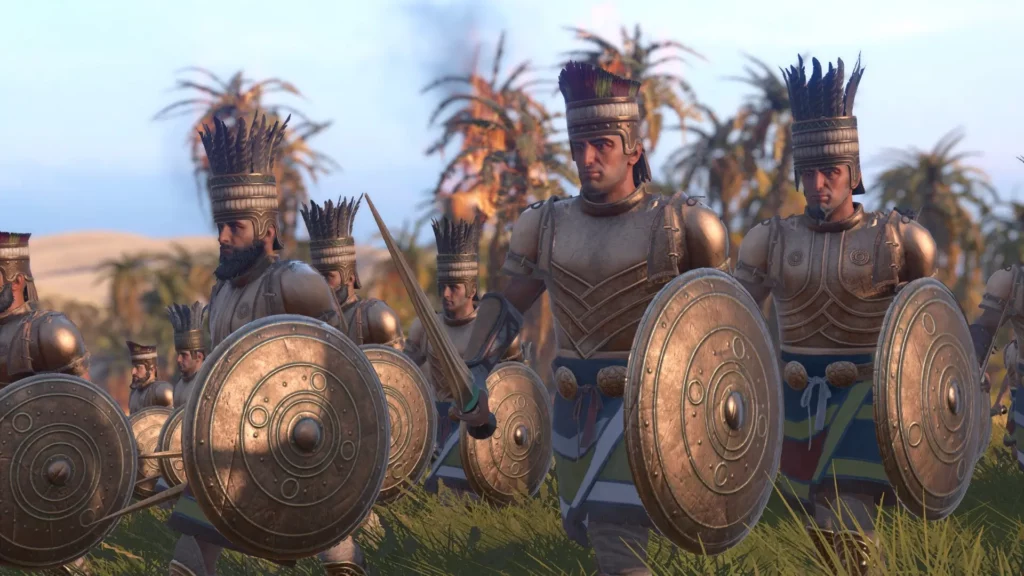
D-Tier: Only for Setting Enthusiasts
Total War: Pharaoh
The latest historical title disappoints, though it has some interesting ideas. Pharaoh expands Troy’s resource system and adds outposts, creating further opportunities for deeper empire building. Also, the Sea Peoples invasion adds an apocalyptic endgame scenario.
Yet these new changes don’t change what’s wrong with the game to begin with. The battles are uninspired, units lack diversity, and siege warfare is boring. Pharaoh just doesn’t offer enough for full price. It’s especially hard to swallow compared with other games in the series.
Total War: Troy
Troy’s expanded resource system has some interesting ideas about empire, but nearly every other aspect is less than stellar. The setting of the Bronze Age cuts down the number of unique units. The diplomacy and hero systems are retrogressive elements compared to Three Kingdoms.
The mechanics surrounding divine favor feel like nothing more than stat buffs and the battles lack the tactical depth of other Total War titles. Unless you’re particularly into the Trojan War settings, there are much better entries in the series.
Conclusion
The Total War series has seen some major highs, followed by some major lows. When at its best, it provides an unparalleled level of strategic depth and spectacular battles that can suck hundreds of hours of you. The games in the franchise might not be of the same quality as their fantasy counterparts in recent history, but the franchise boasts a fantastic legacy.
Creative Assembly is sometimes brilliant in game design and other times dubious in its business practices. We should not let them off the hook as fans, even as we acknowledge what they do well. The Total War series is a very good franchise. There’s a reason the franchise dominates the strategy genre and the future of Total War is still bright despite some recent stumbles.
